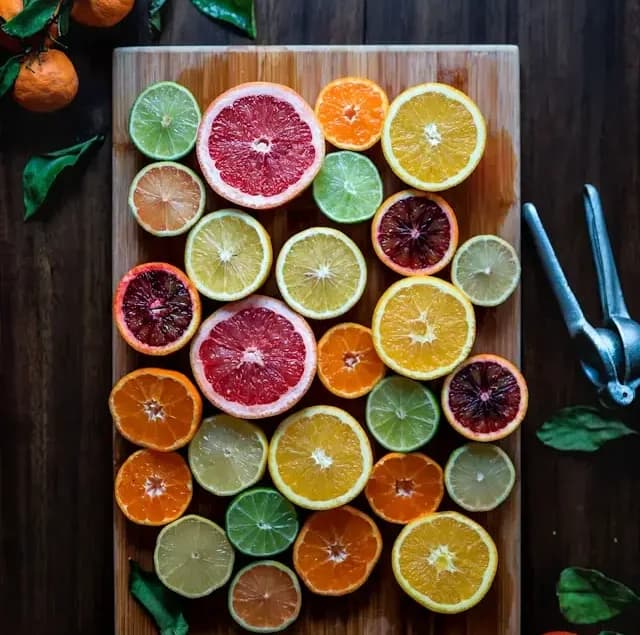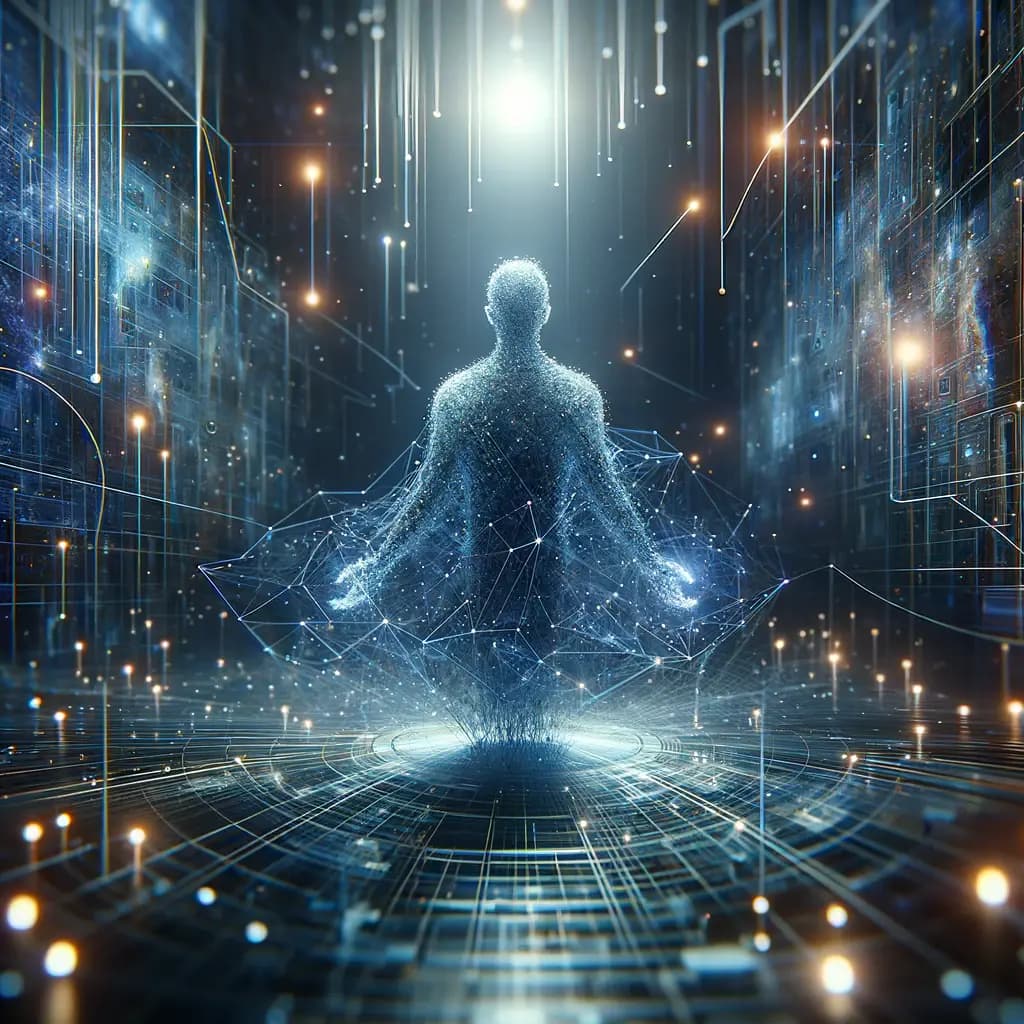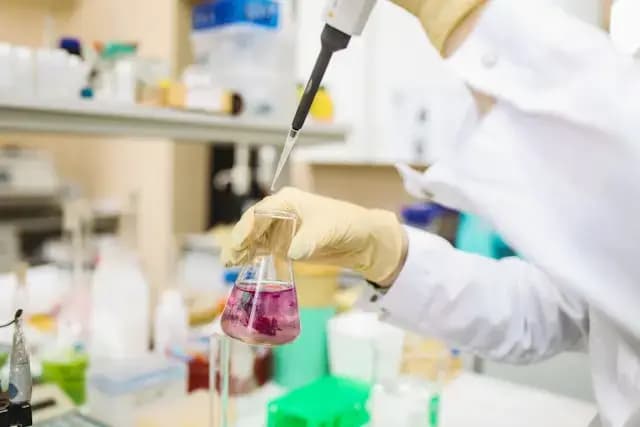Editor:
Good afternoon. Welcome to The Science Dev. We are here at the Techmed event at the University of Twente. Today, we are joining with Kimberly Brock. She’s a Ph.D. Student at the University of Twente. Very warm welcome, Kimberly. Nice to meet you.
Kimberly Brock:
Thank you!
Editor:
Can you tell me about yourself? What you are studying here?
Kimberly Brock:
Yeah. I am a Material Scientist. I’m working on materials for cell encapsulation. So I had an interest in biomedical applications, but I chose in the end the material science. In this way, I can kind of work on both.
Editor:
Which subjects did you study in the master’s program?
Kimberly Brock:
Chemical engineering with a specialization in molecules and materials engineering.
Editor:
Nice. But what led you to choose a research career?
Kimberly Brock:
Yeah. So I’ve always been very curious. I like to learn new things. And in this way, I could, with a Ph.D., I could keep on learning while discovering new things. And I think that’s what’s nice.
Editor:
Nice! So you mentioned, you are interested in materials. Choosing a topic for a PhD research is quite difficult. It requires a lot of research, background research, scientific surveys, and everything. So do you, like the subject so far?
Kimberly Brock:
Yes. I think, yeah. When, as I already mentioned earlier a little bit, I’ve always been into materials, but I also always had an interest in biomedical engineering.
During my studies, I specialized in polymers and hydrogels and I think these hydrogels are perfectly good materials for us to use in biomedical applications. And then I encountered his PhD position, which was about hydrogels for cell encapsulation. So this fitted my two interests. And it was here at the University with Twente. I also did my studies here. So I was already kind of familiar. And in that sense, I thought it was a good fit. And I still think it’s cool if we can make materials basically to fix things in the body or to make models that we can use to study what is happening.
Editor:
So, you mentioned your research also, incorporates medical field – materials with medical applications. Do you have any applications in your mind that, you are going to work on?
Kimberly Brock:
Yeah. My specific research is focused on cell encapsulation. So to provide cells for your 3D environments so we can culture them in a 3D environment outside of the body.
That’s the specific, research that I’m working on. This can be used to study cell-matrix interactions. But of course, it’s also of major importance for tissue engineering applications. If you want to be able to grow tissues outside of the body, you must have a material that provides them the right environment to grow and to support them as well.
Editor:
That’s nice. So, most of the research in biomedical research areas tends to have a direct impact on humans. I believe that your field also has or your research topic also has an impact on society.
Kimberly Brock:
Yeah. Yeah. That is what attracts me to the biomedical applications.
Editor:
Since I’m a physicist, my research area doesn’t have a direct impact on people. I work with quantum particles. So that excites me that people in biomedical research areas can influence a lot for society.
Editor:
But coming back to biological applications or biological research, I remember, doing an experiment, of making a soy sauce, and it took me two years. So that’s that that’s the point. When I decided to move to physics. So it requires a lot of patience. There are a lot of challenges. Are there any challenges in your research topic?
Kimberly Brock:
Yeah, well, I think the biggest challenge is what you already mentioned to be interested. You try to do experiments, and you try something out, and sometimes it doesn’t work.
Kimberly Brock:
Yeah. This can be sometimes really hard, especially with cells. They tend to do whatever they want. Or you can come up with a nice system and, you think, this should work and then it doesn’t. So I guess for me, that’s my biggest challenge personally, to overcome this failed experiment and to see, okay, what can we do differently and also to handle this disappointment. Of course, it wouldn’t be a research if everything worked out perfectly. But it’s still, yeah, it’s still frustrating at times, and sometimes it’s also really difficult.
Editor:
Exactly.
Editor:
To begin work in research, sometimes people are inspired by other people or other historical figures, eminent people, or scientists. Do you have any inspiration from anyone?
Kimberly Brock:
I’m afraid I don’t really have, really inspirational answer for this. I have one big example in my life. So far. I think what drives me is that I like to do something with an application. So. And that can, somehow, contribute to society. I am also really interested in – outside my current research scope, but I’m also really interested in these, circular polymers, for example. This is more on the environmental fields and what attracts me from the biomedical fields is the contribution we can make to society and humanity, I guess.
Editor:
That’s nice. That’s nice. So, any type of research requires a lot of skills, to be earned. Do you have any particular skill sets, that you should have, for doing research in biomedical fields?
Kimberly Brock:
Yeah, for coming from a material background. I think for me, the skills I needed to develop were more towards the cell biology side and how we can use materials in combination with cells. And I sometimes actually make the comparison or joke that:
In a chemical lab, you protect yourself from what you’re working with. Well, in the biological labs, you protect your materials before yourself.
And this is a whole different way of working. But if you keep that in mind, it helps me a bit.
Editor:
Yeah. Yeah.
Kimberly Brock:
And of course, during the PhD, there are more general skills I guess, like time management and planning.
Editor:
Those skills are necessary.
Editor:
Nowadays, we are being helped by AI (Artificial Intelligence). Do you use AI directly in your research?
Kimberly Brock:
No. I must say, I stay away from it. Not on, purpose or anything, but I don’t use any AI myself. Yeah. I do know that some people are enthusiastic about writing codes, for example. But I tend to stay away from programming.
Editor:
This online platform (The Science Dev) is being used by a lot of high school students, especially in the United States. So, do you have any advice for high school students, if they want to come to a research for their career?
Kimberly Brock:
Yeah. So, I guess, one of the things would be a PhD, especially in research as well, is that there is a lot of freedom in what part you can follow, and, I think freedom is two-sided: at one end it gives you endless possibilities and it’s really nice. And you can really, make it your own. On the other hand, it can also be sometimes quite overwhelming. So this is something that’s really good to realize. I think, yeah. The main advice I would give is to find something that you’re really interested in, find that really sparks your interest, and see if you can make that into your research.
Editor:
Yeah, that. That’s nice.
Editor:
Most of the research nowadays, cannot be done by a single person or single group. We need collaborations. Do you collaborate with anyone, outside this university or outside your lab?
Kimberly Brock:
Yes. We have a small collaboration with a research group in Tenerife. We basically use their chemistry to make it into hydrogels. So they did a lot of research on this chemistry and showed that it was, dynamic and everything. But now we are using our expertise to make it into a material that we can use for cells. So I think this is really nice in this way. And I think collaborations are also really essential because certain labs or certain people will have skills, knowledge that others don’t have.
And by collaborating, we can help each other in this way and learn as well. And I think that’s what the research is about.
Editor:
Definitely. It helps you in, building a team environment, for your, later career.
Editor:
What do you think you will be doing, after, say, five years from now?
Kimberly Brock:
Yeah. Good question. I don’t know. I think I would still be interested in doing research because I really like this and also to work in the lab. I really like diving deep into a topic. How and where and what, I don’t know yet. I think it will be in the field of polymers.
Editor:
Yeah. Interesting. So you will be pursuing your career in research.
Kimberly Brock:
Somehow. So if that’s academia or industry research. That can be both.
Editor:
You can apply your knowledge, in making a product. So, that’s also a research
Editor:
Thank you very much, Kimberly, for joining us.
Kimberly Brock:
Thanks.












Responses (0 )